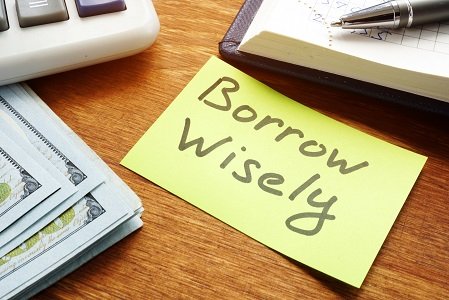
Financial stability is essential to living a stress-free life, but debt can often threaten that peace. Many individuals find themselves struggling to stay afloat under mounting financial burdens. The good news is that with careful planning, financial discipline, and proactive measures, it’s possible to avoid falling too deeply into debt and prevent the need for bankruptcy. Let’s explore some practical tips to help you stay on track.
1. Create a Detailed Budget
One of the most effective ways to avoid debt is to live within your means. Start by creating a detailed budget that outlines your income and expenses. Track where your money is going each month, and make adjustments as needed. This can help you pinpoint areas where you may be overspending and curb unnecessary expenses.
2. Build an Emergency Fund
An emergency fund is a financial safety net that can prevent you from relying on credit cards or loans in times of crisis. Start small by setting aside a portion of your income each month and gradually build up to at least three to six months’ worth of expenses. Having this cushion can protect you from falling into debt when unexpected expenses arise.
3. Pay Off High-Interest Debt First
If you already have debt, focus on paying off high-interest loans or credit card balances first. This will reduce the overall amount you owe in the long run, as high-interest debt can quickly accumulate and become overwhelming. By tackling these balances first, you’ll gain more control over your finances and avoid falling deeper into debt.
4. Avoid Using Credit Cards for Non-Essential Purchases
Credit cards can be a convenient way to make purchases, but they often lead to impulsive buying. To avoid getting into debt, resist the temptation to use credit for non-essential items. Only use credit cards for necessary purchases and always pay the balance in full at the end of each month to avoid interest charges.
5. Consider Debt Consolidation
If you find yourself juggling multiple high-interest debts, debt consolidation might be a viable option. This involves taking out a loan to pay off all your existing debts, leaving you with only one monthly payment at a lower interest rate. Debt consolidation can simplify your finances and help you pay off your debt faster.
6. Seek Professional Financial Advice
If you’re feeling overwhelmed by debt or don’t know where to start, seeking help from a professional financial advisor can be a game-changer. They can help you assess your current financial situation, create a realistic repayment plan, and provide valuable guidance on how to avoid further debt.
7. Live Below Your Means
It may sound simple, but living below your means is one of the most effective ways to prevent debt. This involves resisting the urge to upgrade your lifestyle as your income increases. Instead of spending more as you earn more, try saving the extra income and building wealth over time. This will help you stay debt-free and secure your financial future.
8. Stay Informed and Monitor Your Credit
Your credit score plays a significant role in your ability to borrow money, and it’s important to keep an eye on it. Regularly review your credit reports to ensure there are no errors and understand how your financial decisions impact your credit. Maintaining a healthy credit score will give you access to better loans and interest rates in the future.
How to Avoid Filing for Bankruptcy
Bankruptcy can seem like an easy way out, but it’s not without its consequences. If you’re considering bankruptcy, it’s important to know that it can have long-lasting effects on your credit, and it may take years to rebuild. The best way to avoid bankruptcy is by taking proactive steps, such as negotiating with creditors, seeking debt counseling, and looking for ways to restructure your payments. Bankruptcy should only be considered after all other options have been exhausted.
If you’re facing overwhelming debt and need legal advice, it’s crucial to consult a professional. A personal injury lawyer may not directly deal with financial matters like bankruptcy, but they can help you if you’ve been injured in an accident that prevents you from working. An injury lawyer can assist in securing compensation for medical bills, lost wages, and other damages, which can relieve some of the financial burden and help you avoid turning to debt. If you’re dealing with debt due to an injury, it’s important to have legal support to navigate the financial challenges you face.
By following these tips and being proactive about your financial health, you can avoid falling into excessive debt and prevent the need to file for bankruptcy. Taking control of your finances today will set you on the path to a secure and stable future.
Conclusion
Avoiding excessive debt and steering clear of bankruptcy requires a combination of smart financial practices, discipline, and careful planning. By creating a realistic budget, building an emergency fund, paying off high-interest debt, and living below your means, you can protect yourself from the burden of overwhelming financial obligations. If you find yourself struggling, seeking professional advice or debt consolidation can be helpful solutions. Remember, bankruptcy should be a last resort, and there are many strategies to avoid it if you act early. Taking these steps not only secures your financial future but also reduces stress, giving you peace of mind as you navigate your way to long-term financial stability.
Article written by Karen Anthony, anthonykaren88@gmail.com














